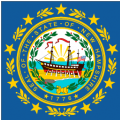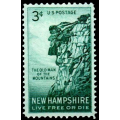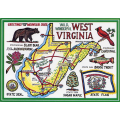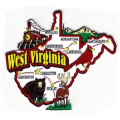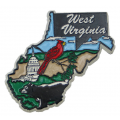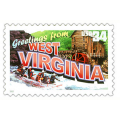Aspiring registered nurses (RNs) in New Hampshire have three options for pursuing licensure: an associate’s degree in nursing (ADN), a bachelor of science in nursing (BSN), and a direct-entry master of science in nursing (MSN). The ADN pathway is by far the fastest and least costly option for becoming an RN.
Latest articles
Licensed practical nurses (LPNs) provide both bedside care and basic medical care for patients. Bedside care enables sick, injured, and elderly patients to accomplish important quality-of-life tasks, such as bathing, eating, and using the restroom. LPNs are also trained to complete basic medical tasks like recording a patient’s vitals, monitoring catheters and medical equipment, dressing wounds, and administering medications. LPNs are often supervised by registered nurses (RNs), working in tandem to monitor a patient’s health and solve any arising issues.
Nursing education can be quite costly, especially when one factors in the expenses beyond tuition. For example, science and medical textbooks can be very pricey. It’s prudent to budget $800-1,000 per semester for books, although students can save by buying used or renting. Another significant cost factor is living expense, which includes the cost of rent and meals. Students who commute to school can save money by living at home during their studies. Finally, most schools require a handful of additional charges like library fees and parking permits.
A master of science in nursing (MSN) degree is an advanced qualification for nurses furthering their careers in specialized fields like nursing administration, nursing education, and family practice nursing. Upon graduation, students can fill advanced practice registered nursing (APRN) roles such as nurse anesthetist, nurse midwife, and nurse practitioner. Below we share some of the best MSN programs in West Virginia.
Wheeling Jesuit University
West Virginia has two types of bachelor of science in nursing (BSN) programs: prelicensure programs that prepare students for the NCLEX-RN licensure exam, and RN-to-BSN programs that enable existing registered nurses (RNs) to earn a bachelor's degree. While the state’s RNs earn a respectable median income of $54,000, BSN-holders often earn top-quartile pay in excess of $65,000 per year. Employers frequently preference BSN-educated nurses for hiring and promotion due to their deeper technical skills. Below we have highlighted three of the top BSN programs in West Virginia.
All associate’s degree in nursing (ADN) programs in West Virginia are focused on initial registered nursing (RN) licensure. These programs are relatively short, spanning just two to three years, and some campuses offer evening classes for students juggling work and school responsibilities. Below we have profiled several of West Virginia’s top ADN programs in depth.
University of Charleston
Licensed practical nurses (LPNs) make up about 20% of West Virginia’s nursing workforce. They earn a median annual salary of $33,710 in the state. LPN certificate programs are relatively short, typically requiring 12 months of fulltime study. Aspiring LPNs must also successfully pass the NCLEX-PN national licensure examination. We highlight below a few of the best LPN programs in West Virginia.
Salem International University
The all-in cost of attending nursing school includes not only tuition fees but also books and supplies, room and board, and other living expenses. We profile below the educational expenses incurred at several of West Virginia’s nursing schools.
Wheeling Jesuit University
A private college or university is an independent institution of higher learning that does not depend on state funds. As a result, these schools usually charge higher tuition fees than public colleges. However, private institutions offer their students several unique perks, particularly smaller class sizes and a prestigious academic reputation. Below we profile three of the best private nursing schools in West Virginia.
University of Charleston
A public college or university can be very attractive to in-state residents, since it offers lower tuition than a comparable private institution. Public nursing schools close the gap by receiving a significant amount of direct funding from the state government. Below we profile several of the most prominent public nursing schools in West Virginia.
West Virginia University

